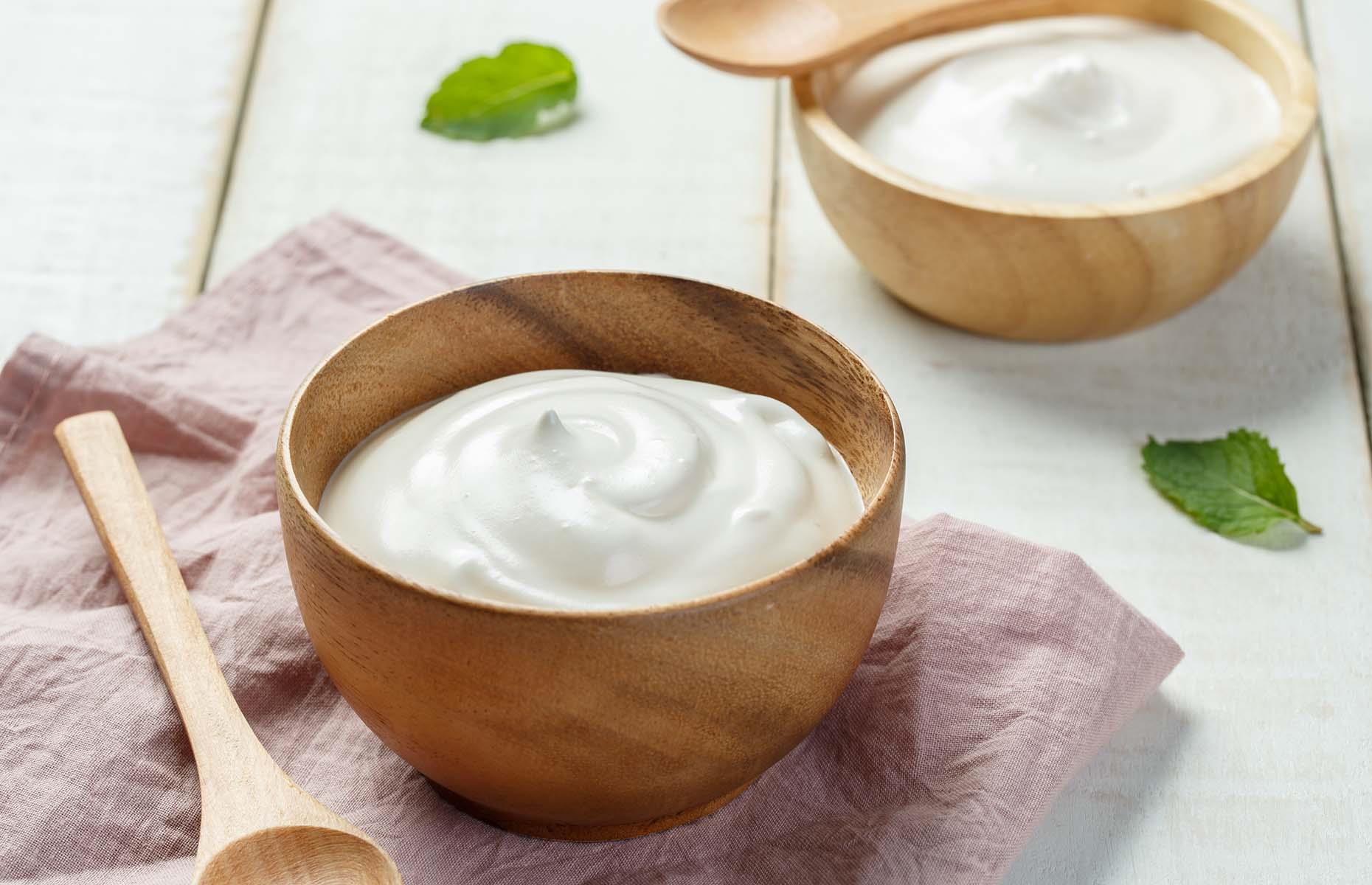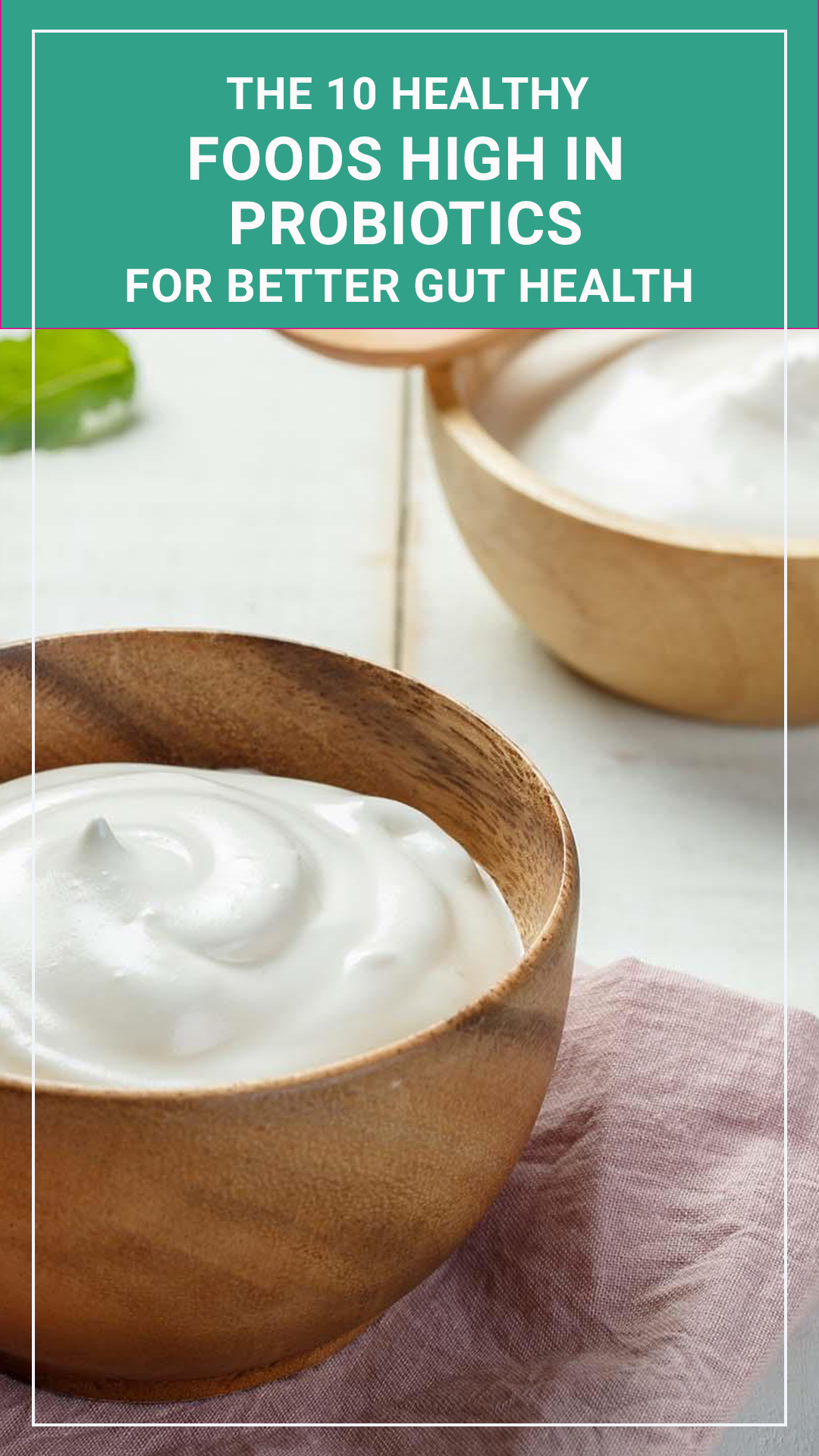
Important: This article is for informational purposes only. Please read our full disclaimer for more details.
Probiotics are live bacteria and yeasts that are good for your health, especially your digestive system. We usually think of these as germs that cause diseases. But your body is full of them, and many are helpful. Probiotics are sometimes called “good” or “helpful” bacteria because they help keep your gut healthy.
10 Foods High in Probiotics for Better Gut Health
1. Yogurt

Yogurt is made from milk that has been treated with bacteria to make it sour and thick. The bacteria used to make yogurt are called “yogurt cultures.” These same bacteria are also used as probiotics.
[ Read: Is Yogurt Good For Cholesterol ]
2. Kefir
Kefir is a fermented milk drink that originated in the Caucasus Mountains. It is made from cow’s milk, goat’s milk, or sheep’s milk that has been fermented with kefir grains. Like yogurt, kefir is rich in live bacteria and yeasts that are good for your gut health.
3. Sauerkraut
Sauerkraut is cabbage that has been fermented by various lactic acid bacteria, including Leuconostoc, Lactobacillus, and Pediococcus. These bacteria produce lactic acid, which gives sauerkraut its sour taste and acts as a preservative.
4. Kimchi
Kimchi is a traditional Korean dish made from fermented cabbage and other vegetables. It is usually spicy and tangy, due to the addition of chili peppers and garlic. Like sauerkraut, kimchi is also rich in lactic acid bacteria.
5. Tempeh
Tempeh is a fermented soybean product that originates from Indonesia. It is made by culturing soybeans with a Rhizopus mold, which binds the soybeans together into a cake-like form. The fermentation process not only creates tempeh’s characteristic nutty flavor, but it also increases the nutritional value of the soybeans.
6. Miso
Miso is a Japanese staple which has been traditionally used to make soup broths. It is made from fermented soybeans, salt and koji (a fungus that is a precursor to penicillin). Like tempeh, miso’s nutritional benefits are increased by its fermentation process.
7. Natto
Natto is another traditional Japanese food made from fermented soybeans. The fermentation process involves the bacterial strain Bacillus subtilis var. natto and activates naturally occurring Vitamin K2 in the beans. Like other probiotic foods, natto can help you maintain healthy digestion and immune function.
8. Kombucha Tea

Kombucha tea is a fermented beverage made from sweetened black tea. It is created by adding a symbiotic colony of bacteria and yeast (SCOBY) to the tea. This fermentation process produces a number of beneficial compounds, including lactic acid, acetic acid, and vitamins B1, B6, and C. Kombucha tea has been traditionally used for its health benefits, which include improved digestion and gut health.
[ Read: 10 Foods Rich in Vitamin B6 ]
9. Pickles
Pickles are cucumbers that have been preserved in a vinegar or brine solution. The fermentation process that pickles undergo creates lactic acid, which acts as a preservative and gives pickles their characteristic sour taste. This fermentation process also increases the nutritional value of pickles by making vitamins and minerals more bioavailable.
10. Buttermilk
Buttermilk is a fermented milk product that is rich in lactic acid bacteria. It is made by adding bacterial cultures to milk and allowing it to ferment. Buttermilk has a number of benefits for gut health, including improved digestion and immune function.
These are just a few examples of probiotic-rich foods that you can include in your diet to improve your gut health. Probiotics are also available in supplement form, which can be taken to ensure adequate intake. However, it is always best to get your nutrients from whole foods whenever possible.
You Might Also Like
- 10 Healthy Foods to Heal Your Pancreas
- 20 Healthy Foods That Make You Poop Fast
- 3 Day Colon Cleanse for Better Health
- 10 Healthy Foods are Rich in Minerals
- 5 Best Yoga Poses for Gut Health
- 10 Foods That Boost In Oxytocin Levels
- 10 Home Remedies To Get Rid of Indigestion
- 10 Foods High in Fatty Acids
- 10 Foods That Are High in Riboflavin
- 10 Best Foods For Constipation
- 10 Foods That Boost Your Mental Health
- The 10 Best Foods to Eat When You Have Cold
- 5 Healthy Recipes to Cleanse Your Body and Lose Weight Fast
















